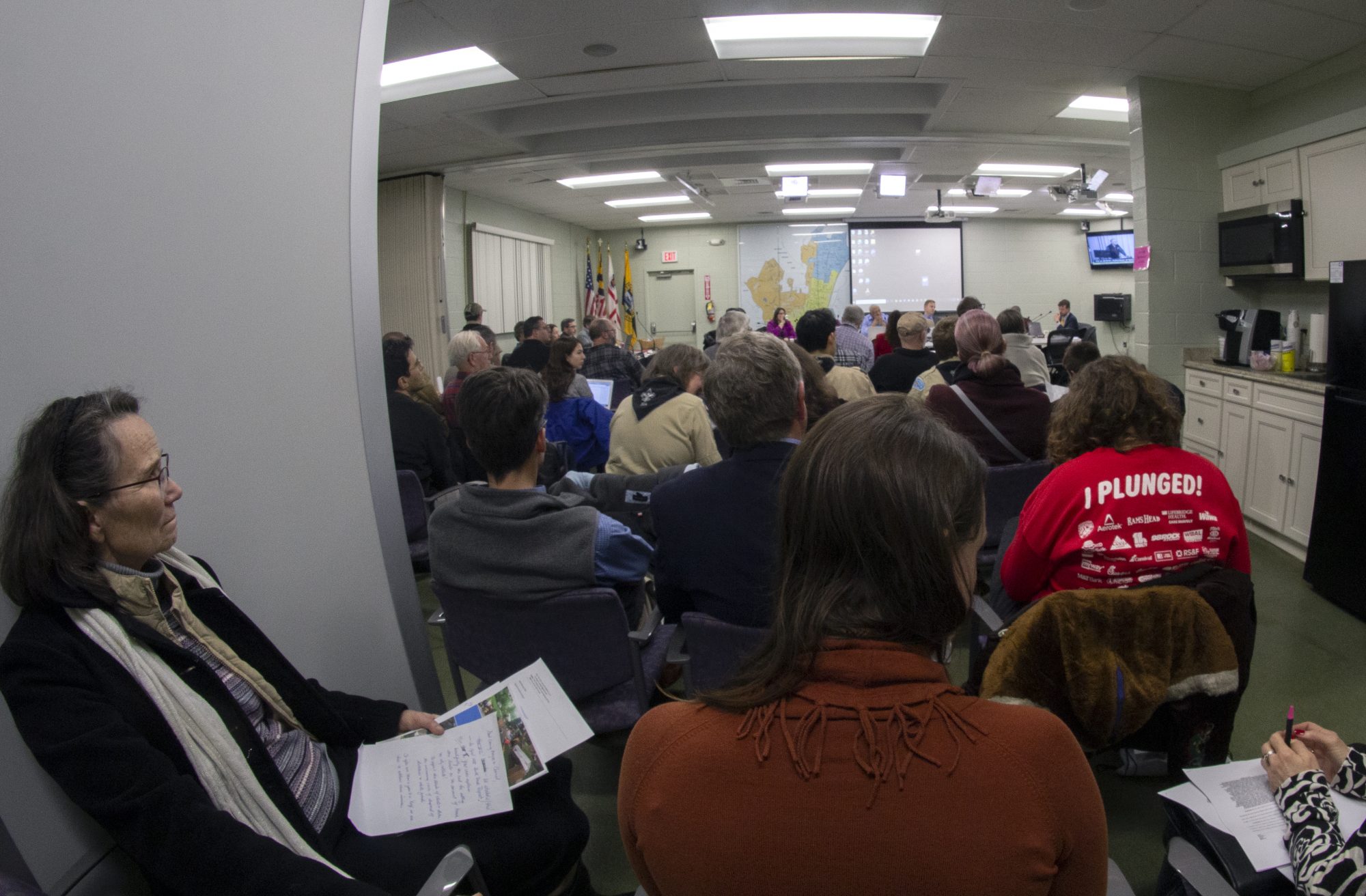At a packed meeting Tuesday night, the College Park City Council passed two highly debated ordinances addressing “special” and “bulk trash” collection in the city.
The council has discussed the issue for years, District 2 councilman P.J. Brennan said. Trash collection is a particularly pressing issue during move-in and move-out dates for students at the University of Maryland, council members said.
The first ordinance deals with defining “special trash” and fines associated with its pickup. According to city documents, electronics and appliances such as refrigerators, stoves and washers, or items containing the chemical Freon — such as tires without a rim or wheel — are categorized as special trash.
The second ordinance addresses the pickup schedule for bulk trash items — like furniture and mattresses — and the number of bulk trash items that can be collected free of charge per unit per year.
Despite concerns of many residents voiced at public hearings, city manager Scott Somers said the ordinances will not affect 95 percent of city residents.
“This is an environmental issue,” Somers said, adding that while the existing trash collection system is effective, about five percent of people in the city use “more than their equitable share.”
[Read more: College Park City Council approves apartment complex near University View]
At the end of the discussion, the council passed the “special trash” ordinance with an amendment that addressed the part of the ordinance that dealt with the number of curbside garbage bins allowed per household, as well as the billing for collection. The ordinance will go into effect on May 1.
The second ordinance also passed with an amendment that allows the rules of the ordinance to be put into effect for “the next six months to a year” without fines.
Still, about ten residents spoke up regarding the ordinances. Most argued the fines imposed and limits enforced were a burden on the city.
David Dorsch, a College Park resident who frequently attends council meetings and speaks during public hearings, spoke against both ordinances, saying that if five percent of city residents are abusing the current trash collection system, the city should focus on correcting that five percent specifically instead of changing the system overall.
“I would ask this council to vote against these two bills until the city provides much more evidence that a major change is necessary,” said Dorsch.
Many who spoke at the public hearing, including city resident Francie Wasser, argued that the specifics presented in the “Bulk Trash Schedule” ordinance made the ordinance too complicated.
“This is going to take time and it’s going to cost money,” Wasser said. “I advocate for a much simpler method.”
Wasser said counting items in each bulk trash pickup to determine whether or not the resident will be charged for the pickup made the ordinance an “administrative burden.”
[Read more: New student housing complex could bring 296 apartments to College Park ]
But to resident Stephanie Stullich, the ordinances are necessary. Stullich argued that the ordinances not only would help to reduce the city’s waste problem, but would encourage residents to recycle.
“We as a society produce too much waste,” Stullich, a former member of the city council, said. “People need a financial incentive to think about changing their behavior.”
Brennan agreed.
“Without some type of incentive, what we’ve seen in practice is the practitioner chooses the path of least resistance,” Brennan said, adding that when choosing between paying a fine to dispose of items or recycling them for free, he hopes that the ordinance will encourage people to reuse and recycle special or bulky items.
Notices will be given to residents who violate the ordinance, and the council will then reassess the issue after about a year has passed.
Mayor Patrick Wojahn praised the council for their work on addressing trash in the city and said he hopes that this is just the beginning of their efforts.
“This is about dealing with an ongoing problem that we as a city need to address,” Wojahn said. “There’s a lot of work we need to be doing in the city in terms of educating people of what their options are for trash.”



